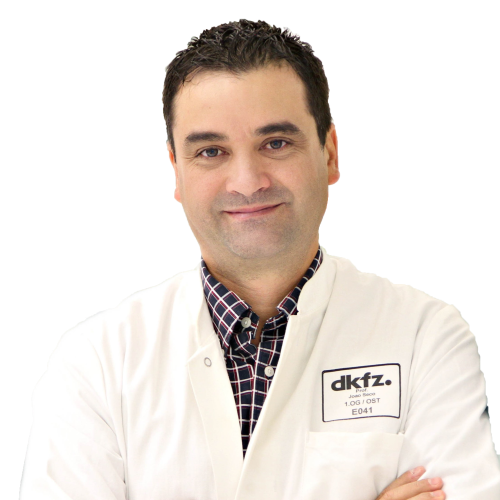Live Cell Spectroscopy Analysis for Personalised Particle Radiation Therapy of Metastatic Bone Cancer
Metastatic bone cancer is an incurable disease and one of the most complex cancers to treat. Due to the high dose, tumour imaging is currently performed at the beginning and end of standard particle radiotherapy (PRT), making personalised treatment difficult. The main goal of BoneOscopy is to develop a radically new technology to enable informed medical decisions by monitoring bone cancer on a daily basis during PRT.
At the heart of BoneOscopy is the ability to detect prompt gamma (PGs) emitted by cancer during PRT and separate them from healthy tissue, unlocking the full potential of spectroscopic analysis without the need for additional dose. The development of a highly specialised detection and collimation system will enable accurate spectroscopic analysis of a very small volume or region within the cancer. As the number of PRT centres grows, we anticipate that within 10 years BoneOscopy will benefit all patients treated with proton and carbon ions.
The objectives of BoneOscopy will be achieved by its interdisciplinary consortium, which brings together six partners from five European countries with key expertise in bioengineering and PRT (DKFZ), medical physics and engineering (CSIC), fast electronics for PRT (LIP), Monte Carlo simulations and clinical PRT experience (THM), turnkey software for high performance medical devices (Cosylab) and EU project management, communication and dissemination (accelCH).
If achieved, the proposed science-to-technology breakthrough will have a transformative impact on current cancer treatment by providing a safe, personalised and quantitative measure of daily treatment efficacy, thereby contributing to the global fight against cancer. In summary, BoneOscopy will lead to a significant reduction in the health burden in Europe and worldwide, improved quality of life for patients, reduced costs for healthcare systems and improved sustainability of healthcare.
This project contributes to the UN Sustainable Development Goal (SDG) 3.
Coordinator:Deutsches Krebsforschungszentrum Heidelberg, DE
Partners:
- Agencia Estatal Consejo Superior de Investigaciones Cientificas, ES
- Laboratorio de Instrumentacao e Fisica Experimental de Particulas, PT
- Cosylab Laboratorij za Kontrolne Sisteme d.d., SI
- Technische Hochschule Mittelhessen, DE
- accelopment Schweiz AG, CH



